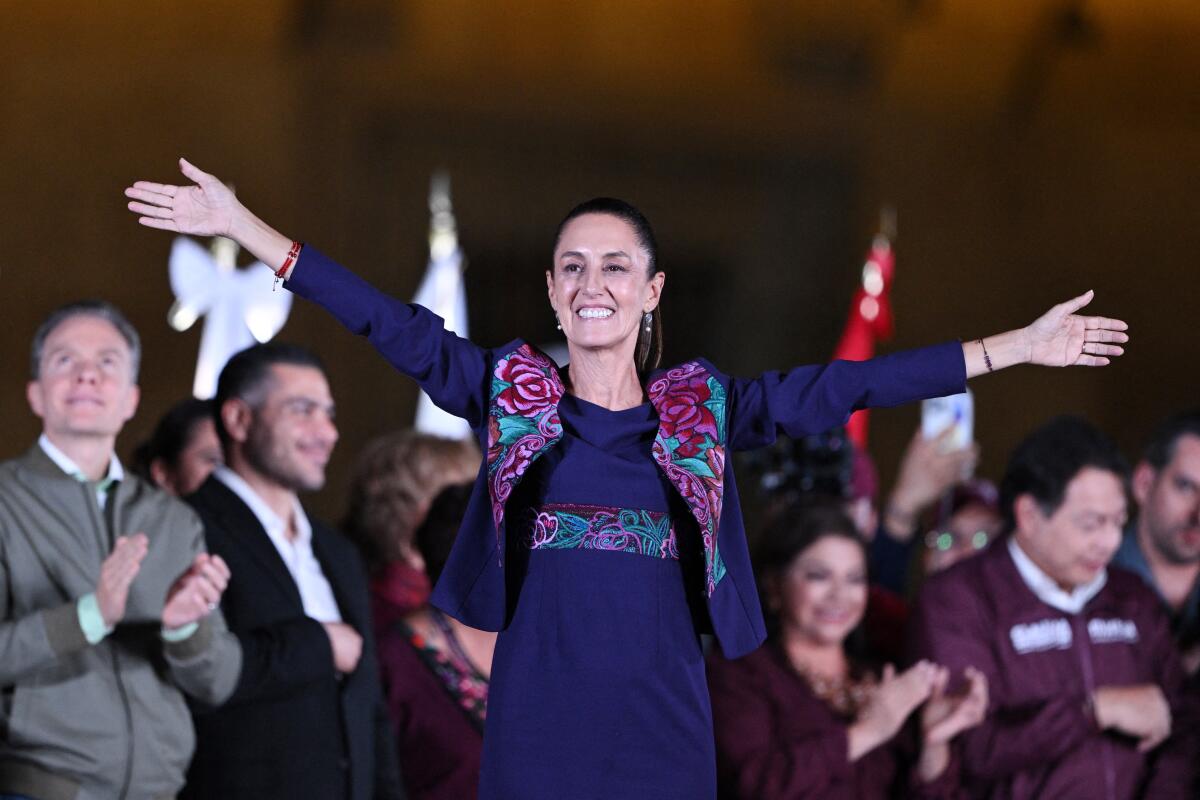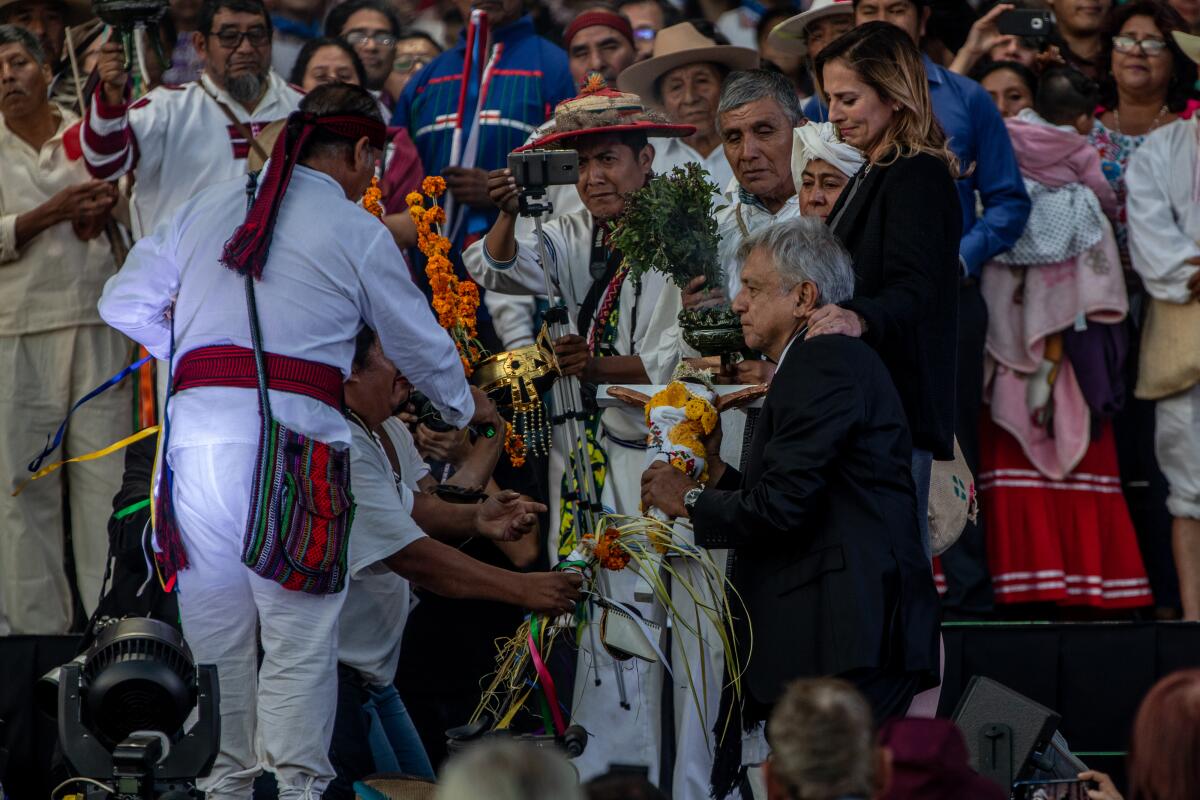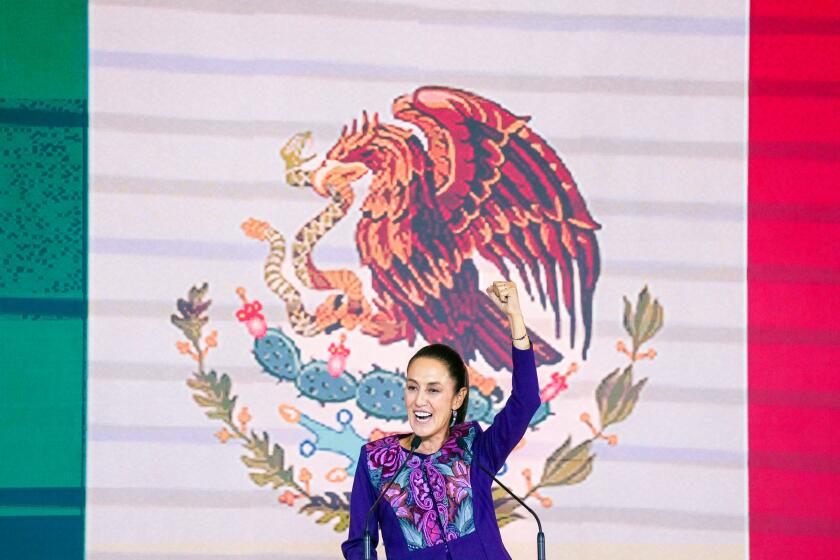The (500-year-old) reason Mexico didn’t invite the king of Spain to the president’s inauguration

- Share via
MEXICO CITY — When Claudia Sheinbaum is inaugurated as Mexico’s first female president on Oct. 1, one delegation will be notably absent.
The Spanish government said this week that it will not send any representatives to the historic ceremony to protest the “unacceptable” fact that Spanish King Felipe VI was not invited.
It was the latest in a simmering diplomatic dispute rooted in the Spanish conquest of Mexico 500 years ago.

In 2019, Mexican President Andrés Manuel López Obrador sent a letter to the Spanish crown demanding that it issue a public apology for abuses committed during the violent invasion centuries earlier.
“The so-called conquest was accomplished with the sword and the cross,” López Obrador said in video that he released at the time explaining his letter. “Thousands of people were murdered during this period. A culture was imposed, one civilization on top of another, to the point where Catholic churches were constructed on top of the temples of pre-Hispanic peoples.”
Spain rebuffed the president’s demands, with government officials telling journalists that the nation’s current leaders should not be held responsible for the actions of their forebears.
The defeat of the Aztecs in 1521 still stirs profound disquiet in the national psyche.
In a statement this week, Sheinbaum said she decided to exclude Felipe VI from her inauguration because Spain never responded directly to López Obrador’s request.
“Regrettably, this letter did not merit any direct response, as would have corresponded to diplomatic best practices,” Sheinbaum wrote.
Although the two countries “share a solid friendship,” Sheinbaum said, a successful bilateral relationship will require “a renewed historical perspective.”
At his morning news conference Wednesday, López Obrador defended Sheinbaum’s decision. “They acted with a lot of arrogance,” he said of Spanish authorities, urging them to “put racism aside” and take responsibility for the horrors of the conquest.

“What does it cost them to offer an apology?” he asked.
López Obrador, who hails from southern Mexico, which is home to the country’s largest Indigenous population, has sought to restore pride in the nation’s Indigenous roots during his six years in office. During his own inauguration in 2018, he was blessed in an Indigenous ceremony. Some of his critics have pointed out that one of his grandfathers was born in Cantabria, Spain.
Mexico election: Claudia Sheinbaum will be Mexico’s first female president, shattering gender barriers in a country with high rates of violence against women.
Sheinbaum, a close ally of López Obrador and a member of his leftist Morena party, has vowed to continue many of the president’s policies, including his emphasis on helping poor and Indigenous Mexicans.
Officials who are confirmed to attend her inauguration include a who’s who of the Latin American left, among them Presidents Luiz Inácio Lula da Silva of Brazil, Gustavo Petro of Colombia, Gabriel Boric of Chile and Miguel Díaz-Canel of Cuba.
For years, women have made inroads into Mexican politics thanks to a 2019 constitutional reform requiring gender parity in all elected posts.
More to Read
Sign up for Essential California
The most important California stories and recommendations in your inbox every morning.
You may occasionally receive promotional content from the Los Angeles Times.














